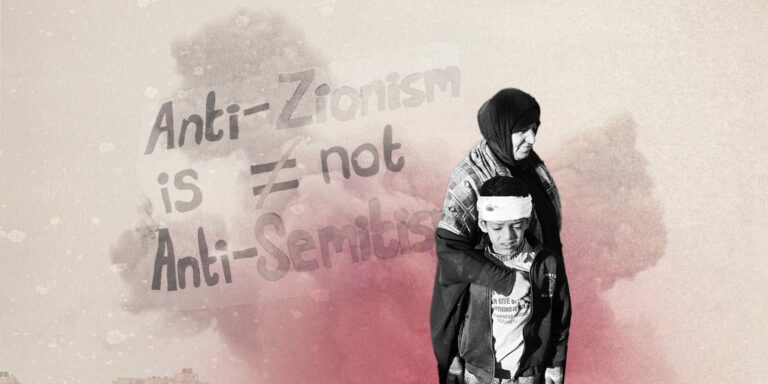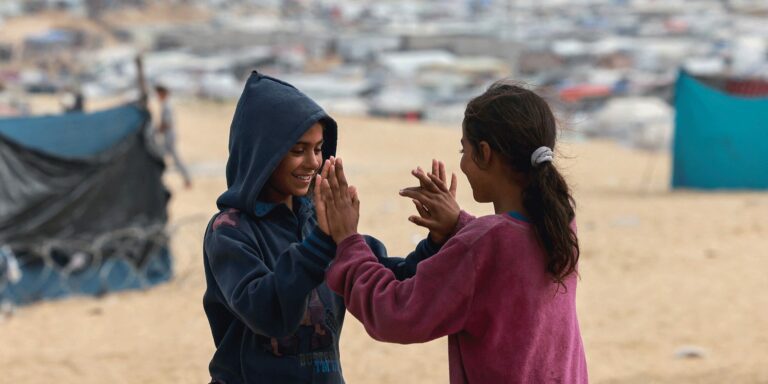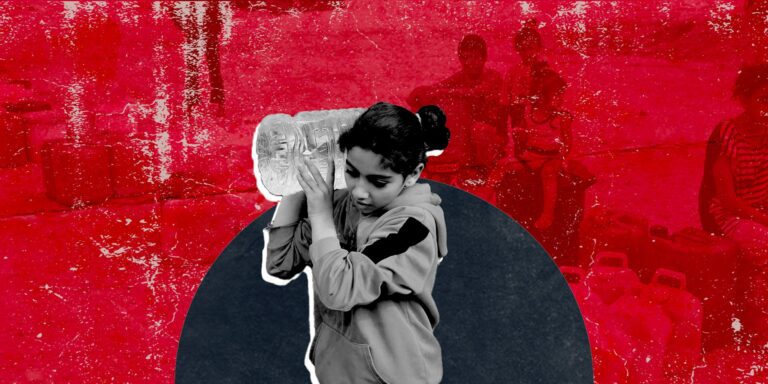During these processions, the French judiciary exposed suspicious and unlawful transactions to close associates of Salameh through Al Mawarid. Al Mawarid opened accounts for close associates of the governor and provided exceptional and facilitated services to these individuals during the capital control phase. Furthermore, Salameh asked Kheireddine to intervene in investigations against him, with the latter telling the judiciary that all his actions were done upon the governor’s request.
Social media in Lebanon recently flared up with scenes of a physical altercation between former minister Wiam Wahhab and journalist Simon Abou Fadel. The two men seemingly disagreed on everything but later found themselves united, defending the Governor of Lebanon’s Central Bank, Riad Salameh.
This scene, in all its brutality, was not exceptional. Ever since the financial crisis started in 2019, Lebanese television channels, whether pro-government or pro-opposition, have been filled with interviews, programs, and analyses, all revolving around the mission of defending the Central Bank’s governor and commercial banks. Salameh remained unaffected by the divisions.
A list of five names
A direct question was posed by the French judge, Aude Buresi, to Marwan Kheireddine concerning financial transactions he made for the benefit of five journalists at the request of Riad Salameh. The list includes names of individuals known for their loyalty to Salameh, such as Joseph Abu Fadel (Simon Abou Fadel’s brother), who has been a strong advocate for the governor in recent years, as well as well-known writers in major Lebanese newspapers who have largely remained in the shadows, such as the economist and former director of planning at Al-Nahar newspaper, Marwan Iskandar, and the editor-in-chief of Al-Diyar newspaper, Charbel Ayoub.
Among these names is Philippe Abi Akl, journalist and author at ICI Beyrouth, which is funded by bank owner Antoine Sahnawi and is widely known for publishing material defending banks. Another name on Buresi’s list is Nawfal Daou, a writer for Al Nahar and the former editor-in-chief of the Al Nahar Net website. Daou is also associated with the March 14 movement.
In response to Buresi’s question, Kheireddine stated that the amounts transferred to these individuals were small, and he was transferring them upon Salameh’s request, not knowing that the recipients were journalists; for example, Joseph Abu Fadel is a lawyer by profession and not a journalist, he stated.
Regardless of their original professions, all of the mentioned individuals have a significant presence in Lebanon’s media scene. A simple online search also reveals their utmost loyalty to the governor.
In an interview conducted in April of last year, Charles Ayoub stated that the European investigations will not lead to any results because they are based on a “fabricated defamation campaign.” Furthermore, Philippe Abi Akl also pointed out around the same time as Ayoub’s interview that there was a “conspiracy” being plotted against Salameh and the financial sector.
In a lengthy article published in an online newspaper in March 2023, Marwan Iskandar strongly defended Salameh’s tenure as the Central Bank’s governor since 1993 and rejected all allegations of corruption. Meanwhile, Nawfal Daou tweeted: “The propaganda being spread against the governor is an attempt to undermine the positive impact of his efforts to restructure the banking sector.”
In February 2023, Joseph Abou Fadel was asked about his consistent support for Salameh, to which he responded that he defends him because “I defend what is right, and if the governor is corrupt, I will not hesitate to say so. They won’t find anything on him; he does not launder money because he has his own wealth.” In another interview with MTV channel this month, he said: “The governor was unjustly treated.”
The evidence presented during the investigation with Kheireddine unequivocally confirms what was already evident about the relationship between the media and the authorities of a country where media outlets are controlled by entities that have financial power, whether it be the state, a party, or a bank. The banks did not pay any price for this flattering coverage.
According to a report published by The Policy Initiative titled “Buying Narratives: How Lebanese Banks Exploited the Media to Influence Public Opinion,” the banking sector paid around 1.25 billion dollars to Lebanese media outlets between 2012 and 2021, during a time when the same exact banks were refusing to give people their righteous money due to a liquidity crisis.
The investigation also revealed that the buy-ins were not limited to media outlets, for such financial services were also directly given to journalists as well in a yet another step to influence public opinion.
Most of the individuals whose names were mentioned did not confirm nor deny their relationship with Lebanon’s Central Bank when we contacted them, although their responses did vary. Joseph Abu Fadel stated that he was a legal advisor to Salameh and received financial compensation for his services. He mentioned that he opened a “fresh” bank account at Al Mawarid with a deposit of ten thousand dollars to benefit from the credit card for overseas use. As for the journalist Charles Ayoub, the owner of Al-Diyar newspaper, he simply stated that he has been out of the country for health reasons and will communicate with his son, who he claimed is now in control of the newspapers financial management We did not obtain any additional answers when we tried to reach out to him again. Marwan Iskandar, on the other hand, mentioned that Kheireddine has been a long-time friend, but he refused to talk to us about the investigations and emphasized that he is “not interested in communicating with us,” ending the call immediately. As for Philippe Abi Akl, he denied any involvement altogether, stating: “I have no connection to the case, whatsoever.” As for Nawfal Daou, he did not respond to any of our attempts to contact him.
Investigating Kheireddine
Buresi’s question was introduced during the interrogation session which took place in early April 2022 in Paris, France. French authorities and investigators initially suspected that Kheireddine provided forged documents as part of the serious corruption case against Riad Salameh in European countries. Based on this suspicion, French authorities detained Kheireddine on March 22 while he was passing through Charles de Gaulle Airport in Paris, seizing his phone and computer. Subsequently, a detailed investigation was conducted, whose content Daraj has been informed about, indicating that the suspicions related to Kheireddine are in fact serious, and if proven, the punishment could be ten years in prison.
Concealing the source of financial services
Buresi’s questions largely focused on conversations between Kheireddine, Salameh, and others through WhatsApp messages and emails.
Regarding the payments made to journalists, Kheireddine admitted that there was a mechanism adopted between him and Salameh to conceal the source of the funds. He explained that Salameh used to send money from his personal account at the Central Bank to the account belonging to Al Mawarid at the Central Bank, and then he would send instructions to Kheireddine via WhatsApp or in a phone call to deposit these funds into a third party’s bank account. In turn, Kheireddine executed the transfers either by moving the money from Al Mawarid’s bank account at the Central Bank to a designated account, or arranging for it to be delivered in cash to the beneficiaries.
The amounts involved in these operations ranged between 100 to 300 million Lebanese pounds, equivalent to $11,600 to $35,000 based on the exchange rate at that time. These operations continued until 2022.
During the questioning, Buresi asked about the reasons behind adopting this mechanism, and Kheireddine stated that he was just following the governor’s instructions. This was not the only service that Kheireddine provided to those close to the governor.
Non-cash services
The exchanged messages between Salameh and Kheireddine indicate that financial payments were not the only way through which Kheireddine was able to provide services to those close to the governor. For instance, the journalist Nawfal Daou was able to cash a check during a period when an unofficial capital control was imposed, placing illegal restrictions on depositors. When asked if this was a service for Riad Salameh, Kheireddine confirmed and added that such treatment was not extended to any other customer.
Among those who also benefited from these services was the actress Stephanie Saliba, for whom Kheireddine opened an account in his bank upon Salameh’s request. After the Beirut port explosion, Saliba’s apartment was completely destroyed, and she requested “fresh” payments from the account in which Salameh was depositing money into. She also deposited a check worth 132 million Lebanese pounds in the Central Bank and withdrew it in dollars. Saliba also transferred $200,000 to a bank account in London.
A bank for family, friends, and friends of friends
When asked about the reason for providing services to the Central Bank’s governor, who is supposed to oversee Kheireddine’s own bank, Kheireddine repeatedly responded that he has a strong relationship with the governor, and such things happen in Lebanon. He also mentioned that at the beginning of the crisis, he opened accounts for members of Salameh’s family, accounts under the names of companies he owns, and accounts under the names of close associates, including Marianne Howayek. Kheireddine pointed out that he personally managed some of these accounts, as well as around 15 other accounts belonging to his close associates. Among the accounts that Kheireddine personally monitored were those belonging to journalists Raghidah Dargham, Ilham Freiha, and Bassam Freiha.
Daraj’s report
Buresi inquired about a WhatsApp conversation between Salameh and Kheireddine on the same day that Daraj published a report in which the journalist Dima Sadek explained the details of the Crystal Group International’s report. This report relates to Riad Salameh, his brother Raja, and his assistant Marianne Howayek and accused the three of embezzling around two billion dollars. According to the investigation, Salameh told Kheireddine in a WhatsApp message that the details in the report were inaccurate and asked him to use his influence to delete the report and find out its source. Kheireddine’s response to Buresi was that the message was not about Daraj’s report, but rather about another website, Lebanon News Online, run by a Druze person. Kheireddine did not answer the judge’s question about why he agreed to provide services to Salameh in order to silence the press.
Intervening in the judiciary
Among the conversations that were extensively discussed during the interrogation was a message between Salameh and Kheireddine talking about withdrawing documents included in Beirut’s investigation file. Buresi informed Kheireddine that she verified this by comparing the file sent from Beirut to France with the one sent to Germany, and it appears that some pages were indeed withdrawn from the file that reached Paris.
Kheireddine stated that the conversation between him and the governor concerned Salameh inquiring about services offered by the former Minister Wiam Wahhab meant to help Salameh face the judicial investigations in Europe. Kheireddine said that the governor asked for his opinion because he knows there is a close connection between the two men, as they both belong to the Druze sect and come from the same region. Kheireddine advised Salameh to listen to what Wahhab had to say without relying on any services he might offer. Daraj asked Wahhab if he made an offer to “conceal what really happened,” to which he jokingly replied: “I wish I could do something, but we cannot do that here [in Beirut].” He added, “Thus, this is impossible in France because it is a country with a judiciary.” Wahhab stated that the conversation was between him and Kheireddine, his friend of 30 years, and he suggested introducing him to strong French lawyers because Salameh’s lawyer in France is not strong enough.
Media at the service of money
In conclusion, the investigation’s details show that the French judiciary continues its investigations into the case of Riad Salameh, and it is expected to start including other names, as the lawsuit is filed against anyone who the investigation proves to be involved in the fraud operation that Lebanese depositors were subjected to. On the other hand, it is expected that the Lebanese media will continue to defend Salameh and the banks, as the price for this task has already been paid in advance.





